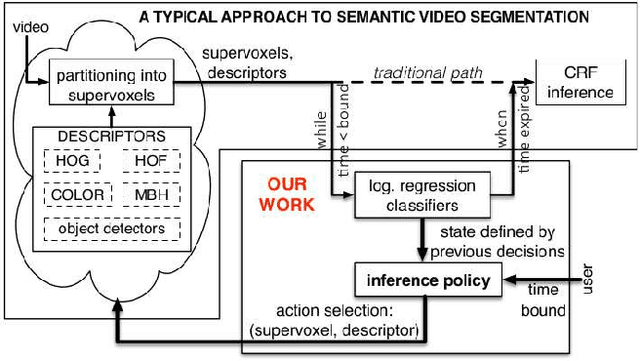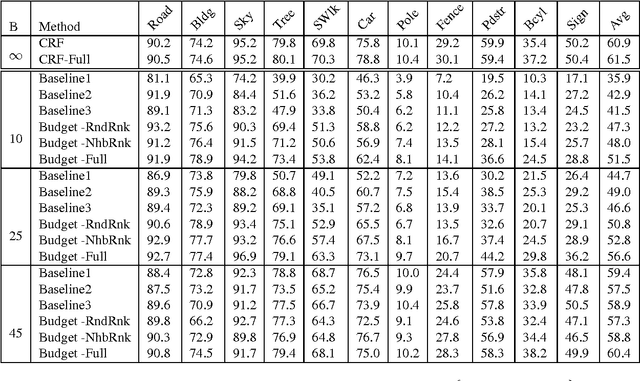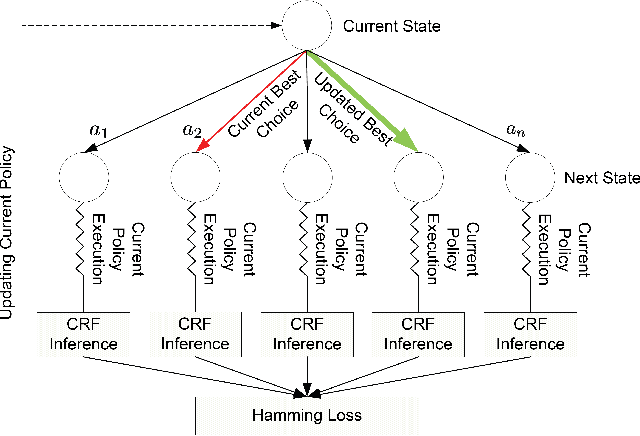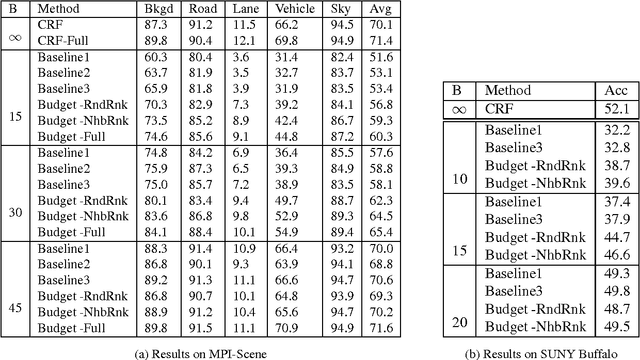Approximate Policy Iteration for Budgeted Semantic Video Segmentation
Paper and Code
Jul 26, 2016



This paper formulates and presents a solution to the new problem of budgeted semantic video segmentation. Given a video, the goal is to accurately assign a semantic class label to every pixel in the video within a specified time budget. Typical approaches to such labeling problems, such as Conditional Random Fields (CRFs), focus on maximizing accuracy but do not provide a principled method for satisfying a time budget. For video data, the time required by CRF and related methods is often dominated by the time to compute low-level descriptors of supervoxels across the video. Our key contribution is the new budgeted inference framework for CRF models that intelligently selects the most useful subsets of descriptors to run on subsets of supervoxels within the time budget. The objective is to maintain an accuracy as close as possible to the CRF model with no time bound, while remaining within the time budget. Our second contribution is the algorithm for learning a policy for the sparse selection of supervoxels and their descriptors for budgeted CRF inference. This learning algorithm is derived by casting our problem in the framework of Markov Decision Processes, and then instantiating a state-of-the-art policy learning algorithm known as Classification-Based Approximate Policy Iteration. Our experiments on multiple video datasets show that our learning approach and framework is able to significantly reduce computation time, and maintain competitive accuracy under varying budgets.
 Add to Chrome
Add to Chrome Add to Firefox
Add to Firefox Add to Edge
Add to Edge